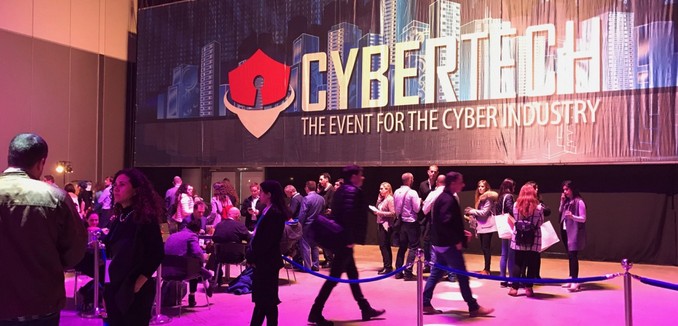As computer devices and the “Internet of Things” continue to break new boundaries and create changes to our lifestyle, new cybersecurity mechanisms to defend our tech-savvy lives are crucial.
“Not many years ago, computers were far away. Then they came to our desktops, then to our laptops, and then to our pockets; now they’re in our clothes and, for some, in our body — medical devices. All this needs to be defended,” Erez Kreiner, CEO of Cyber-Rider and former director of Israel’s National Cyber Security Authority, told a press gathering at this week’s Cybertech 2017 conference in Tel Aviv.
He noted that Israel is the place to find many of the best cybersecurity products.
Last year saw 65 startups created in Israel’s cyber space, according to the nonprofit organization Start-Up Nation Central. Altogether, the country boasts about 450 companies specializing in cyber, according to a Reuters report.
Israel’s venture-capital funding in the cyber sector, according to Start-Up Nation Central, is a record $581 million, second only to the United States.
“We’re still at the beginning for the cyber arena. We still need the security solution for smart homes, we still don’t have security solutions for autonomous cars, or for connected medical devices or MRI machines, or for connected kitchen appliances. Every technology that will be introduced to our lives in the coming years will need a cyber solution,” says Kreiner.
Indeed, our digital society makes us vulnerable to external threats of cyber terror, cybercrime and identity theft.
Control systems, online banking, networks, databases and electronic devices are all susceptible to attack.
“In the cyber arena, I’d say we’re in the September 10th zone,” says Kreiner. “We know very bad things can happen. So we invest in cybersecurity but still we’re very much on the edge.”
Cybertech 2017, held for its fourth year at the Israel Trade Fairs & Convention Center, attracted over 10,000 visitors, investors, entrepreneurs and cyber companies. Cybertech is the second-largest conference and exhibition of cyber technologies in the world.
Visitors come seeking the latest in cybersecurity. After all, Israelis came up with the concept of firewall security before hackers even started attacking personal computers.
“There are a lot of global innovators in cybersecurity. But if I were to put a bet on it, I would bet on Israel,” Esti Peshin, director of Cyber Programs at Israel Aerospace Industries, tells ISRAEL21c about where the best new technologies will come from.
“What you see today is going to get a lot worse in the future if we don’t band together,” Prime Minister Benjamin Netanyahu told conference attendees.
“Terrorist organizations use the same tools we use – against us,” said Netanyahu. “The Internet of Things can be used by these terrorist organizations for dangerous purposes. Unless we work together and cooperate, the future can be very menacing. In this context, Israel, the US and other countries should cooperate at the government level as well as among the industries.”
At the Ben-Gurion University exhibit area, two prominent examples of research-to-startup success included Morphisec, which is now opening a U.S. office, and Double Octopus, which recently announced a $6 million investment round. Both companies developed cyber security prevention and detection tools based on patented technology originating out of the university.
Israel’s vision some 20 years ago to put cyber on top of the agenda was crucial to the country’s place today as the world cybersecurity hotbed. To further that vision and to keep Israel’s new generation at the top of the cyber game, Netanyahu announced the creation of a National Center for Cyber Education.
The new center will have a $6 million budget over the next five years, to “increase the number and raise the level of young Israelis for their future integration into the Israeli security services, industry and the academic world.”
(via Israel21c)
[Photo: Israel21c ]




